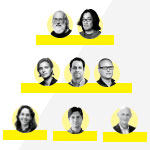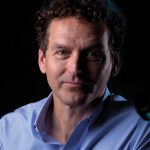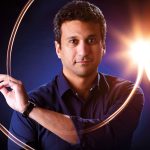Update on initiatives to support diversity and BIPOC
In the News
The COVID-19 pandemic is affecting every dimension of American life, and laying bare many of the deep, structural inequities of our society. These include who has access to healthcare; whose work is considered essential; which communities have greater air pollution (thus putting their residents at greater risk for poor outcomes from infections); and much more.
Adding to the collective trauma is the racism and racial injustice being experienced by communities of Black, Indigenous and other people of color (BIPoC).
Salk’s mission to better humanity extends beyond science. The Institute stands with BIPoC at Salk and everywhere, not only in the spirit of solidarity, but also with actions that will continue to contribute to the betterment of humanity and lead to meaningful change. Repugnant racial discrimination and violence against Black people are devastating reminders that individuals, institutions and communities must urgently and continually assess and enhance efforts to change.
Salk’s leadership and the Institute’s Office of Equity and Inclusion have been working on several initiatives to this end:
Diversity & Inclusion Task Force
When the Campus Culture Advisory Committee was formed in 2019, the Institute committed to creating a Diversity and Inclusion Task Force, which has now been formally established. It is being co-chaired by Assistant Professor Dannielle Engle and Professor Kay Tye, both of whom have been active throughout their careers in promoting diversity and parity in science. Working in concert with faculty and staff, the Task Force will focus on increasing the diversity and inclusion of BIPoC at Salk, with an immediate charge of identifying ways in which the Institute can fight systemic racism and injustice.
Mandatory Education and Training
In late 2019, the Institute began developing mandatory training that will roll out in July 2020, focusing on explicit and implicit bias, privilege, and bystander-to-upstander guidance. The training also provides tools to help people be proactive and empowered to assist others in need.
Mission Statement and Core Values
Salk’s mission statement will be refined and a set of clearly articulated core values will be documented. As stewards of the inspiring legacy of founder Jonas Salk, the Institute is adamant in its opposition to racism and stalwart in its support of diversity and inclusion. For those values to endure and to guide our progress, they must be embodied in everything Salk does.
Campus Climate Survey
At the recommendation of the Campus Culture Advisory Committee, the Institute is developing a campus-wide survey that will assess the extent to which Salk provides an environment that welcomes and enables participation by all members of the Institute; seeks diversity in individual backgrounds and perspectives; provides access and resources for all; and determines whether the campus is experiencing the values we espouse when articulating campus culture. The results will help inform measures that can be implemented to further Salk’s commitment to promote a diverse and inclusive environment.
Discussion Sessions
OEI launched a quarterly discussion club about issues pertaining to equity and inclusion as well discussion sessions, called “Collective Voices for Community Healing,” for the Salk community. These efforts aim to amplify diverse voices and offer the opportunity to engage in constructive dialogue.
Increased Communications
The Institute will provide expanded and enhanced communications to help bolster education and raise awareness on issues of equity and inclusion on multiple fronts.
Jonas Salk notably said, “our greatest responsibility is to be good ancestors.”He sought to found an institution that would be concerned not merely with nature, but with the human side of nature—what he referred to as “the human dimension.” Particularly in these challenging times, this means we must be vigilant in helping to end racism and injustice, continue to actively support diversity in our people, ideas and research, and ensure that everyone has a voice, at Salk and beyond.
[ssba]
Support a legacy where cures begin.
Featured Stories
 Apart but togetherAs COVID-19 spreads across the world, organizations like the Salk Institute have mobilized to respond. In this feature article, read about how the Institute is adapting and continuing its groundbreaking science.
Apart but togetherAs COVID-19 spreads across the world, organizations like the Salk Institute have mobilized to respond. In this feature article, read about how the Institute is adapting and continuing its groundbreaking science. New COVID-19 research projectsIn addition to Salk’s ongoing research areas relevant to COVID-19, several new coronavirus-specific projects have recently launched. These innovative projects range from understanding the structure of the virus to mobilizing the body’s immune reaction.
New COVID-19 research projectsIn addition to Salk’s ongoing research areas relevant to COVID-19, several new coronavirus-specific projects have recently launched. These innovative projects range from understanding the structure of the virus to mobilizing the body’s immune reaction.
 A conversation with Martin HetzerIn the last few months, Salk Vice President and Chief Science Officer Martin Hetzer spearheaded the Institute’s efforts to respond to the pandemic from both an administrative as well as a scientific perspective.
A conversation with Martin HetzerIn the last few months, Salk Vice President and Chief Science Officer Martin Hetzer spearheaded the Institute’s efforts to respond to the pandemic from both an administrative as well as a scientific perspective.
 Eiman Azim – Decoding dexterityIn this Q&A, Assistant Professor Eiman Azim shares his thoughts on what’s next in neuroscience, how all scientists are philosophers and what he learned about movement from observing his newborn.
Eiman Azim – Decoding dexterityIn this Q&A, Assistant Professor Eiman Azim shares his thoughts on what’s next in neuroscience, how all scientists are philosophers and what he learned about movement from observing his newborn.
 Nasun Hah – Next gen sequencingAs the director of the Next Generation Sequencing Core, Staff Scientist Nasun Hah collaborates with everyone from plant biologists to neuroscientists to provide support and information about sequencing genes and entire genomes.
Nasun Hah – Next gen sequencingAs the director of the Next Generation Sequencing Core, Staff Scientist Nasun Hah collaborates with everyone from plant biologists to neuroscientists to provide support and information about sequencing genes and entire genomes. Update on initiatives to support diversity and BIPOCLearn about the Institute’s commitment to and actions around diversity and inclusion.
Update on initiatives to support diversity and BIPOCLearn about the Institute’s commitment to and actions around diversity and inclusion. Molly MattyMolly Matty, a postdoctoral researcher in the lab of Associate Professor Shrek Chalasani, shares what worms can teach us about human behavior, why science outreach is so important and why she enjoys puns.
Molly MattyMolly Matty, a postdoctoral researcher in the lab of Associate Professor Shrek Chalasani, shares what worms can teach us about human behavior, why science outreach is so important and why she enjoys puns.





















































